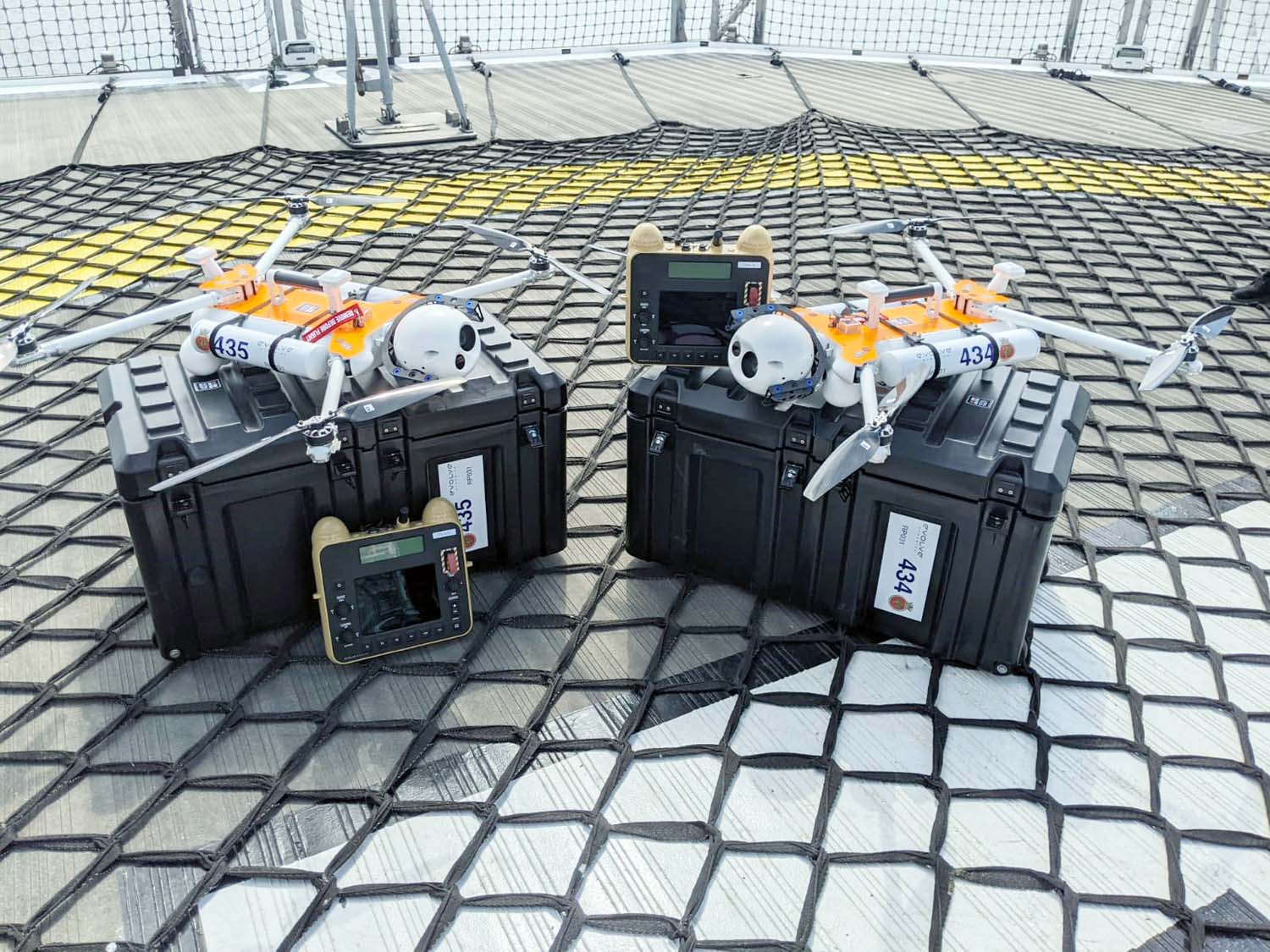Royal Navy Icebreaker's Crew Tests Drones to Scout for Ice Leads

The Royal Navy's sole polar research vessel is testing out a pair of drones for the critical task of spotting leads in the ice.
HMS Protector, an icebreaker built in 2000 as the ICE 05-class survey vessel Polarbjørn, was originally designed for commercial offshore work in the Arctic. Repurposed as a Royal Navy icebreaker for the British Antarctic Survey in 2011, Protector makes regular deployments to the Southern Hemisphere for scientific missions and fisheries patrols.
As is typical for an offshore vessel, Protector was fitted with a very large helicopter pad, but she was not designed with helicopter hangars. This means that she cannot carry her own manned aviation units for hunting leads in the ice. As a substitute, her crew is now testing a pair of special-purpose drones capable of ultra-low-temperature operation.

Courtesy Royal Navy
The new drones - built by a UK-based firm - weigh about 16 pounds apiece, and members of Protector's regular crew have been training to operate them. The Royal Navy's dedicated drone squadron based at Culdrose has been providing instruction for the mission-critical task. With better intelligence on the state of the ice ahead, Protector's bridge team will be able to make better decisions about where to navigate.
“When operating in the ice we will always look for the path of least resistance, as this reduces the long term strain on the engines and hull,” said survey specialist and hydrographer Lieutenant Adelaide Banyard. “It is very easy to ‘chase a lead’, an area with less-concentrated ice, but that might not actually take [us] in the direction we want.”
With a video feed from the drones, the crew will be able to pick the best leads available, avoiding the slow and heavy work of breaking ice. The drones can also be used for overwatch during fisheries inspection boardings or shore expeditions.
According to Lt. Cmdr. Robbie Nash, the drones will make HMS Protector the first ship in the Royal Navy to have its own remotely-piloted aerial systems on board. "Hopefully we have demonstrated a viable route for other units to source and develop their own drone capability," said Nash.
